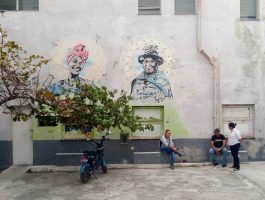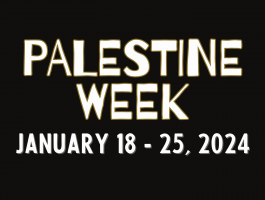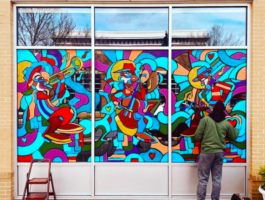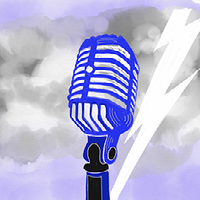By: Lester K. Spence
Published in Urbanite
Since I moved to Baltimore several years ago, I have lived in two predominantly black neighborhoods, by choice.
My family attends a predominantly black church with a black pastor, also by choice. While I attended the University of Michigan for undergraduate and graduate school, I joined an all-black fraternity (Omega Psi Phi). When asked my religious preference, I (slightly tongue in cheek) answer, “house music.” When I go to clubs, I tend to go to black clubs—clubs that are run by and for black patrons, or clubs that sponsor events put on by black promoters. Again, by choice.
There are a number of African Americans in my position who make the same choices, based on similar desires to live around and socialize with other African Americans. We need those black spaces to stay rooted, to stay healthy, to stay sane. Politically, we need those spaces to dialogue, to build, to grow.
When I hear people talk about “self-segregation” and about how we need to get Baltimoreans to move beyond their racially clustered neighborhoods, I get it, theoretically and practically. Theoretically, diverse groups come up with better ideas and arrive at substantially better outcomes; practically, the central problems we face as a community, as a city, as a country, are problems that we have to deal with together. We breathe the same air. We drink the same water. Our employment/unemployment rates go up and down in the same way (although there’s an obvious gap). We all suffer when our children are undereducated. So we have to create shared spaces in which to create interdependent solutions.
But at the same time I understand the need—at least for African Americans—to have a space in which we do not have to defend our racial existence, our humanity. A place where we don’t have to worry about being “the Other,” about having our presence questioned, about having our words deconstructed at best and ignored at worst.
Let me expand by way of a story.
During the fall 2008 semester at Johns Hopkins University, I taught an introductory course on race and ethnicity. The goal of the course was to teach how what we think of as “race” and “ethnicity” are continually produced and reproduced as opposed to being something that we are born with. My “blackness,” rather than being some fixed quality that I have from birth until death, is something that is created and then recreated by individual, social, and institutional processes. My own children don’t identify someone as “black” because they’ve been genetically hardwired to do so. They do so because they’ve been socialized to do so. Inasmuch as whites too live with race, they also construct and reconstruct their “whiteness.”
I spent the first day of class dealing with these ideas, using the example of the murder of Vincent Chin. A Chinese American, Chin was brutally beaten to death in Detroit in 1982 by two white autoworkers who, mistaking him for being Japanese, held him personally responsible for the decline of the American auto industry. Before that moment, the “Asian American” arguably didn’t exist—Japanese and Chinese Americans, for example, thought themselves part of (very) different groups. But afterward, when it became clear that some white Americans thought of Japanese, Korean, Chinese, and Vietnamese (among others) Americans in similar (negative) terms, these formally disparate groups began to think of themselves as one (racial) group.
I left the class exhausted but excited. The School of Engineering was having a reception on the patio nearby. I hadn’t had anything to eat or drink all day, so I walked over and asked the staff if I could have a couple of cans of Sierra Mist. I asked because I was conscious of two things—first, that I was not a member of the engineering faculty. Second, I was the only African American there.
The catering staff welcomed me at first. But as I was getting ready to leave, a woman staffer rudely asked me to move my backpack from the table it sat on because the staff wanted students to have access to it. I thought this was curious because my backpack didn’t prevent students from using the table and because I was in the process of leaving anyway. So, confused by her request and by her rudenesss, I asked her why she asked me to move my backpack—more specifically, I asked her what she saw that caused her to ask me to do so. She told me she saw me taking things out of my bag, as if I planned to stay.
I was still confused. She couldn’t have seen me take anything out of my backpack because I was leaving. So I chose my response carefully.
“What did you see me take out of my backpack?”
She then told me I would have to take my things and leave.
Which of course made me even more upset. I asked for her name and to speak to her supervisor. She walked away without giving me her name, and after few minutes her supervisor, a white man appearing to be in his 30s, arrived. I introduced myself as a faculty member, told him I was leaving, and explained that I felt I had been treated rudely by one of the staff members. He nodded sagely. Then he told me if I didn’t leave, he would call security.
I saw red.
I told him to call security and that I would wait. When security didn’t come fast enough, I called myself. Because I identified myself as a faculty member when I spoke with the dispatcher, not only did three officers (two black and one white) arrive, but later one of their (white) supervisors arrived as well.
When I explained what happened, the white officer was puzzled. The black officers, though, immediately understood. One of them started talking to the white officer, while the other took the staff woman’s statement. I overheard her saying, “He started raising his voice and making gestures, and I felt threatened.”
I am rail-thin, weighing 150 pounds dripping wet. I was in a public place, surrounded by staff and students. Because I knew I was the only black person there and because I am always cognizant that I am one of the few blacks on campus, I made sure that I spoke clearly and calmly. And still, I threatened her.
Remember: Race and racism aren’t biological realities as much as they are social realities that we continually produce and reproduce. So, how was racism reproduced here? When the supervisor walked over to me, I was already on my way out. And I told him I was on my way out. But he told me that I had to leave. I told him I was a faculty member, and he never even asked to see ID. He jumped to the threat—if you don’t leave we’re going to call security. We were both, in effect, stuck in a dialogue that we could not get out of, as if we were reading a script. And while I was at least aware of its existence, I couldn’t get out of the script either.
A whole set of institutional rules and practices created that scenario, where I was the only African American at that event. Explicit rules (standardized test scores) and implicit rules (“right” vs. “wrong” undergrad schools, having the right professor write a recommendation) determine who gets into the School of Engineering and who is excluded. Explicit and implicit rules determine who -is hired and who is not. Explicit and implicit rules determine who is even allowed on campus and who is not. None of these rules depend on individual racism for their existence; none of these rules depend on individual racism for their maintenance. But these rules place me in the position of outsider, and both the staff member (by stating that I was a threat) and her supervisor (by ignoring my account) reproduced that status. And, in being treated as if I was an outsider, I became an outsider. I had nothing to say worth listening to, no rights to speak of.
The only way I felt I could get out of this narrative was by refusing to accede to the threat.
Later, I talked about the incident to one of my former students, now a public defender. When I told her that I overheard the staff member’s statement, she interrupted me. “Let me guess. She said you were making furtive gestures and that she felt threatened.”
Unlike a somewhat similar incident involving an African American academic that occurred last year, you did not hear about this on TV, and there was no “beer summit” or diversity workshop afterward. Because of what I study (racial politics, black politics, public opinion, urban politics), I can write or teach about it or give public lectures on it. But I am abnormal here. Most people in my circumstance would have no venue, no vehicle with which to take what happened to them and make it work, either for the purpose of generating some sort of racial comity and understanding or for the purpose of being made whole.
Self-separation.
The first time my oldest child was old enough to come to campus with me was when I was in grad school. I took her on the bus to campus, she walked with me as I ran errands, and then we hopped back on the bus and went home. By then I was exhausted, because all of those moments I would normally spend in autopilot, walking between point A and B, I now had to spend in constant awareness of my daughter, of what she was doing, what she was picking up, what she was feeling.
Predominantly white spaces can be exhausting to navigate. I have to consciously be aware of what I am saying, of who is around me, of what I am wearing, of what I am doing, of what others are saying and doing. In critical ways, I cannot let my guard down for a moment. Because—and even as I write this I recognize how paranoid this may sound to people unfamiliar with the experiences I refer to—at any point I may be forced to defend myself, defend my presence.
In stark contrast, when I am at home, or at my wife’s church, or with my fraternity brothers, or at the club listening to house music, I am at home. I am not a statistic. Not a threat. Not an outsider. Not an anomaly. I am safe to “be.” I can be the “representative for the race.” I can be the one black person in the room. But I don’t have to be. I can take the story I just told you and explain in detail why I think I was being racially profiled, why I think other possible explanations don’t stand up to empirical scrutiny, why I think I was saved by the two black officers who knew what was going on without me having to tell them. But when talking to other black men and women or even to young children (to my children), I don’t have to.
I can, in those spaces, breathe.
—Lester K. Spence is an assistant professor of political science at Johns Hopkins University. In 2009 he received the Johns Hopkins Excellence in Teaching Award. He can be reached at unbowed@gmail.com.





